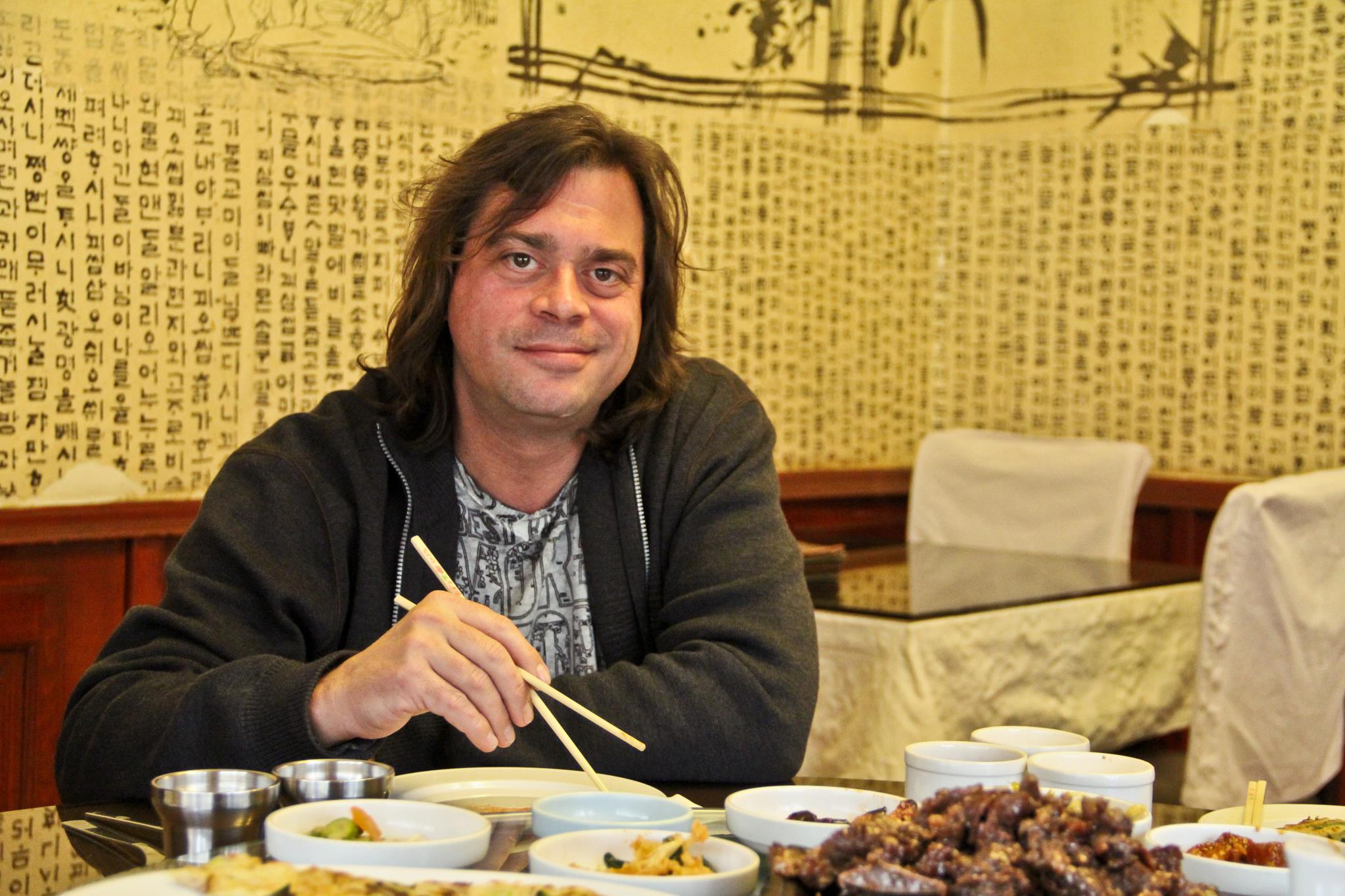
Dispatch: United S. of A. Week 3
America is bipolar in many ways, Democrats and Republicans come to mind, and the swing is just as great when it comes to eating habits. When foreigners think of American cuisine, they usually think of hamburgers, hot dogs, pizza, fast food in general, and it’s true, people here love this stuff; but the opposite is also true: many Americans are equally as passionate about slow food.
Born in Italy in 1986, the Slow Food movement now has hundreds of chapters worldwide that aim at getting people to eat healthy in a socially and environmentally responsible way. As author Michael Pollan (The Omnivore’s Dilemma) says: “Eat real food. Mostly vegetables. Not too much.”
It’s all about being a locavore. Eat what grows where you live. Support your local farming community. Practice sustainability and fair labor practices. Be a good global citizen. Sounds like a good idea, but not everyone agrees on the science and the economics.
Some argue that local, organic farming is a luxury for rich countries and that elsewhere large, industrial, super-farms are needed to feed the population. Others say that “real food” is not as eco-friendly as we think. Certainly it costs more and advocates of slow food have been charged with being elitists, more concerned with hunting down the perfect heirloom tomato at any price than looking for ways to enhance sustainability on a global scale.
Don’t get me wrong. I am a firm believer in slow food, and try to put this ethic into practice as much as humanly possible, but I do feel we need to consider this carefully. If there are hungry people in the world, if the science of all this is unclear, if 10 percent of the workforce has worked at McDonald’s at one time or another, if poor families can feed themselves more cheaply on fast food than slow, then we have to think this through. Sustainability means worrying about peoples’ needs too.
In the US the Slow Food movement has done this recently by focusing on what they call “food justice,” organising events that highlight making healthy locavore meals for around the price of a Big Mac and fries. Similar efforts are being undertaken elsewhere. The Slow Food Egypt chapter, for example, has become involved in what they call the “Thousand Gardens in Africa” project. As one of my former students, Sara El Sayed, a member of the group, explained, prior to the revolution, even agriculture was controlled from above, often times in the interests of multinational corporations like Monsanto or Dupont. Slow Food Egypt wants to encourage people to plant and grow organic food gardens for themselves that are in harmony with the environment. The South Sinai Slow Food Convivium, an organisation composed of hotels, restaurants and individuals, has similar goals. They want to promote healthy locally grown produce in a way that helps preserve Bedouin traditions with an emphasis on local foods such as olives and lamb.
Just as inevitably as fast food has spread through globalisation so too has the idea that we can eat healthy and save the planet at the same time. In Cairo we are seeing the first evidence of this in businesses that recycle such as the Longchamp Hotel and Amici Bar, and especially in the newly opened Trio, where the full ethos of the Slow Food movement is put into play.
It is a little piece of California in the heart of Zamalek. Locally sourced, organic food; recycled packaging; giving the proceeds from restaurant waste to charity; thinking green: it’s all there. And you’ll pay for it.
But this should not prevent us from eating real food, mostly vegetables, not too much, most of the time. Next time you are in a supermarket check-out line, look at what the other customers have in their baskets: bottled salad dressing, canned peas, potato chips and soda pop, packaged frozen chicken parts, factory produced white bread with all the nutrients leeched out of it, boxes of sugary cereal; jars of instant coffee. In this Egypt and the US are identical. Most people shop that way.
And when we go out to lunch, why eat at Chili’s or Burger King when Trio and other “green” restaurants serve healthier food that is produced, packaged, prepared and disposed of in ways that are good for people and good for the planet? Because it costs more and because it is not always convenient. It seems we cannot have our fashionable, socially responsible, eco-friendly cake and eat it too.




